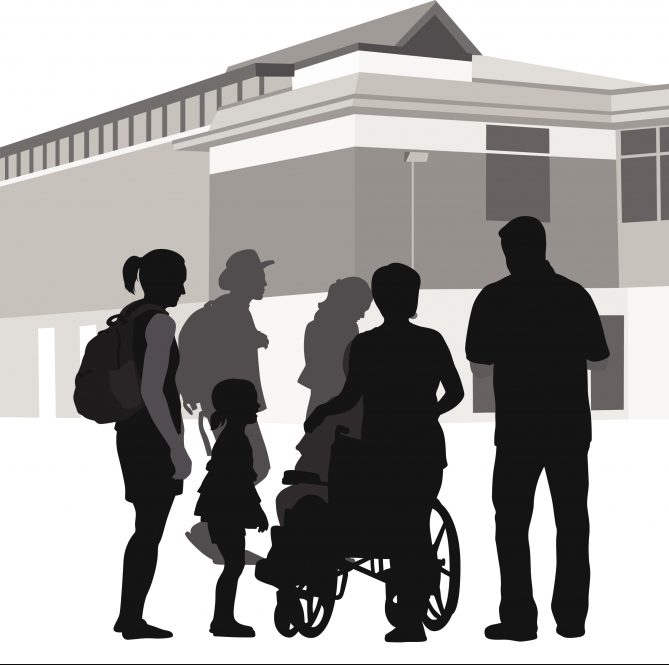The federal Administration for Community Living (ACL) has renewed funding for the University of Connecticut’s cross-campus Center of Excellence in Developmental Disabilities Education, Research and Service (UCEDD).
UConn’s UCEDD is devoted to helping those with disabilities and their families. It now begins a new five-year cycle to address issues, find solutions, and conduct research to advance the needs of individuals with developmental disabilities and their families.
UConn’s UCEDD is one of 67 federally designated UCEDDs nationwide. UCEDDs are interdisciplinary education, research, and public service units of universities, or public or nonprofit entities associated with universities. They are authorized by the Developmental Disabilities Assistance and Bill of Rights Act and funded by ACL.
Since the late 1980s UConn’s cross-campus Center of Excellence in Developmental Disabilities Education, Research and Service (UCEDD), based at UConn School of Medicine, has conducted multidisciplinary scientific research, evidence-based intervention practices, community-based service delivery and ongoing policy reform.
The goal of UConn and all UCEDDs nationwide is to help persons with disabilities achieve outcomes that result in being able to live as independently as possible, be productive members of society, work in paying jobs, and have the greatest quality of life possible.
“There is indeed a science about how to provide services to those with disabilities beginning at birth. Our number-one goal is to enhance the quality of life of those with developmental disabilities and that of their families,” says early childhood intervention expert Dr. Mary Beth Bruder, the UCEDD’s director and professor of public health sciences and pediatrics at the UConn School of Medicine and Neag School of Education.
Bruder adds: “Connecticut’s UCEDD at UConn is on the front lines enhancing the lives of people with developmental disabilities from birth to adulthood, with a major focus on the early years of birth to 5. There’s a lot more work to do for those with developmental disabilities.”
To help build a more qualified workforce, the UCEDD trains dozens of graduate students each year from different professional disciplines at UConn, and a dozen more doctoral students in early childhood and disability studies at 10 research universities across the country.



